The Royal Court’s 'Boys from the Blackstuff' is a hit. But it was never meant to be a period piece
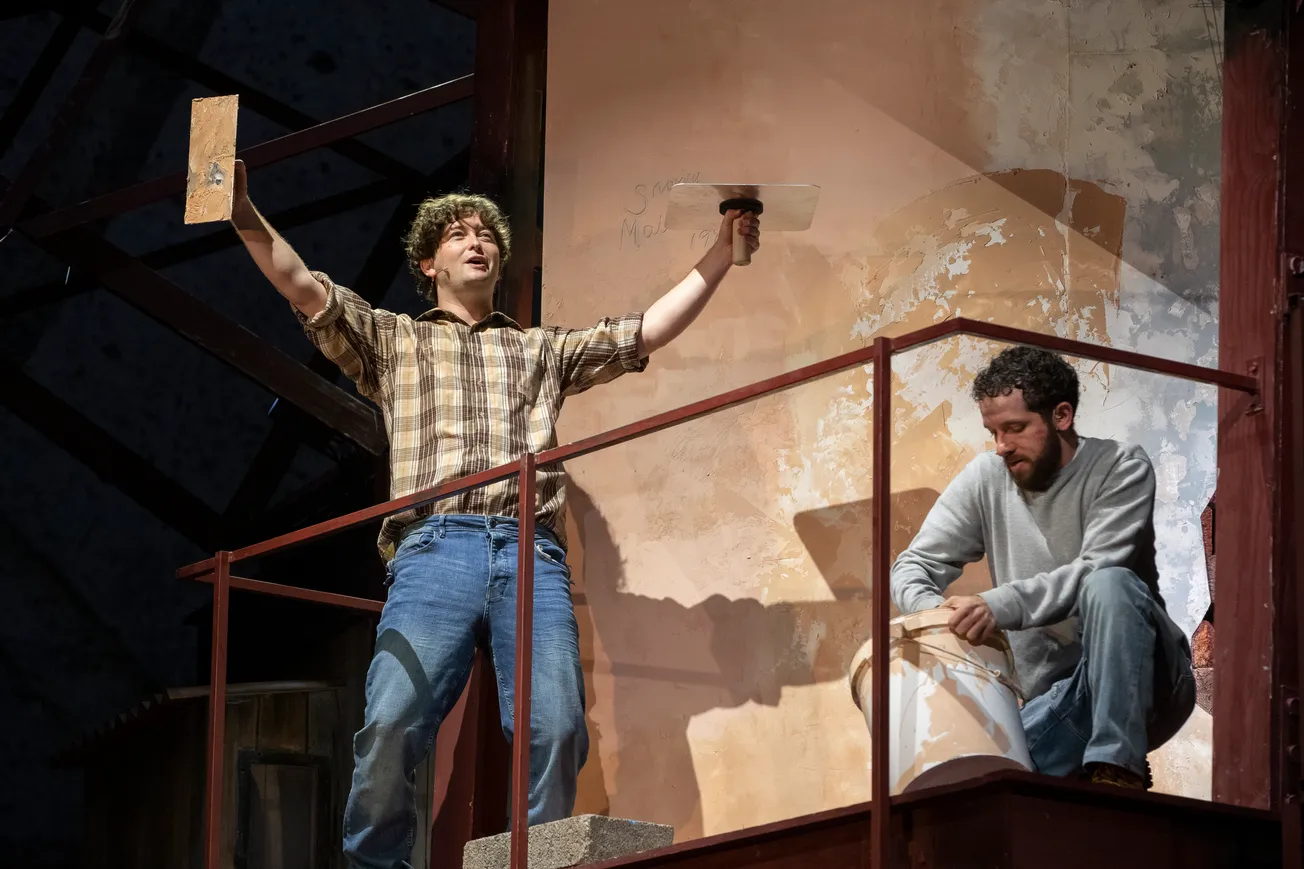
Why do the 80s still cast such a long shadow?
I first watched Boys from the Blackstuff by mistake. It was a Thursday, and necessity dictated that I was round at my friend Colin's flat, on Catharine Street — after Radio Rentals had repossessed the rented TV in my own home, I didn't have a TV of my own. Colin and I had a routine, of sorts: Thursday evening was for watching the kids from Fame leap around in their leg warmers, Colin swooning over Leroy, me wishing I had a Bruno in my life. He was doing my make up for me, and we were both drinking warm white wine, and Macmillans nightclub in Concert Square beckoned.
On a whim, Colin turned the TV over after Fame ended, and there it was. Boys From The Blackstuff, a TV series about as opposite to Fame as you can get, made us an hour late for our trip down Bold Street. I remember watching it with the degree of distance that cultural consumption while a bit pissed entails. The characters felt both intimately connected to me and archetypes, moving and speechifying across the screen.
Why am I telling you this — about the repossessed telly and the warm white wine? Because remembering is slippery. It’s too easy to smear Vaseline on the lens — to remember everything soft and misty. But what’s important to remember about the series about a group of tarmac layers working on a temporary job was that watching it back then wasn’t a nostalgic act.
It was nothing less than electricity moving through you, back then, to see a non-Beatles Liverpool on the TV — to see the ordinary version of the city on screen, the dole office and the pub. In general, the television was reserved for London, not here. Watching it involved the admission that perhaps this was important, too. Perhaps a person could write a play about ordinary people in Liverpool, and it air on the BBC.
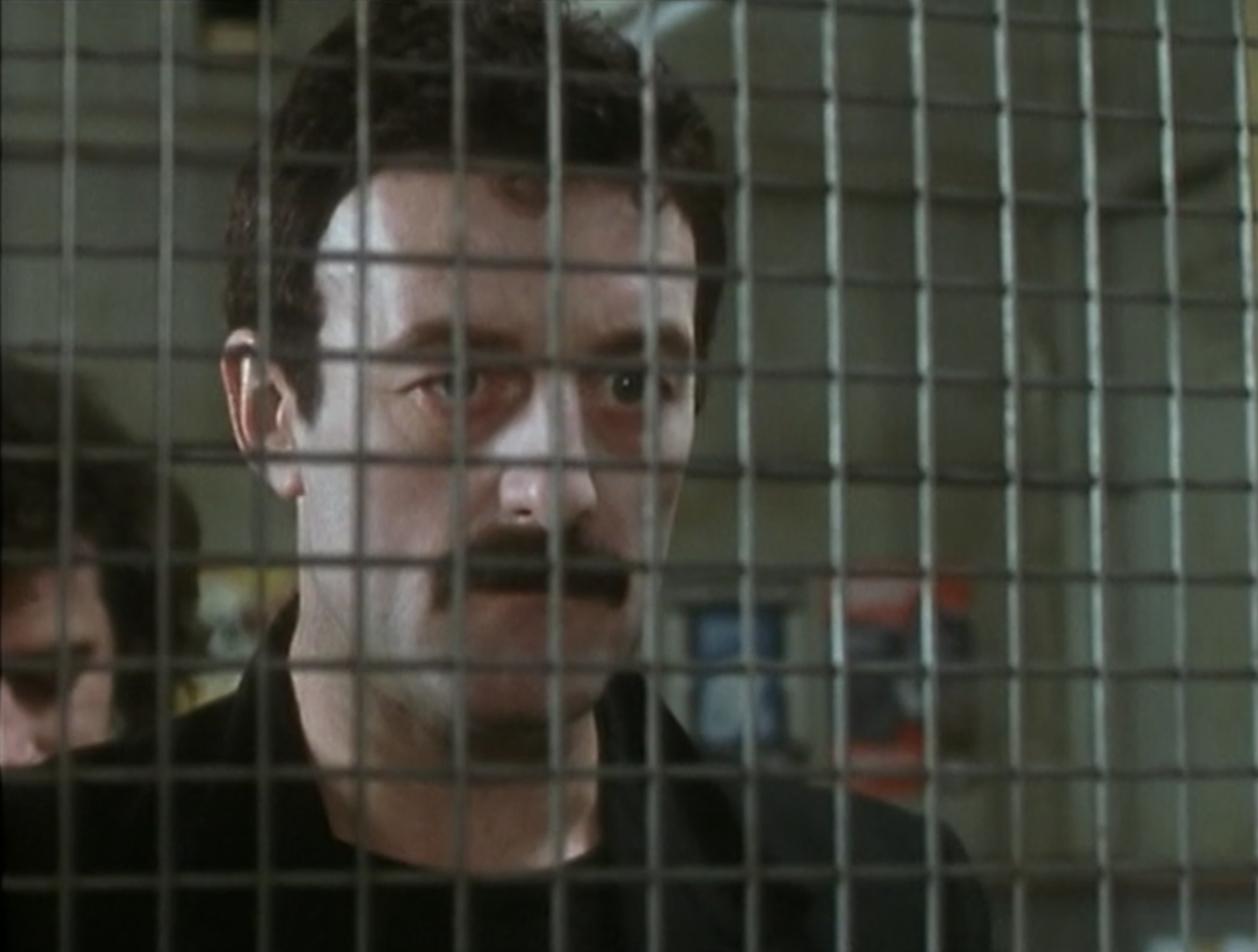
That’s how Boys From The Blackstuff started life. Before the five-part series, it all started with a play (simply, The Black Stuff) which they filmed and showed, just like that, as theatre. So the Royal Court running Boys from the Blackstuff as theatre doesn’t seem revolutionary to me, so much as a return to the beginning (though not the very beginning — writer Alan Bleasdale’s first BBC outings were actually on radio, for which he wrote dramas which often centred on the Liverpudlian character of Scully).
It’s also a minor miracle, of sorts. The story goes like this: Bleasdale was approached, year after year, and asked if he would adapt the series to the stage. But he had no interest in doing so — he didn’t think it would work, and he didn’t think any other writer was capable of adapting it, either. All this changed when Kate Wasserberg (who directed the Royal Court adaptation) got involved. First, she wrote Bleasdale a letter explaining exactly what she wanted to do with the series, something which “made complete sense” to him. It helped that she was supported by Bleasdale’s agent who “rated her very highly”.
Then, in a separate meeting with James Graham, the Olivier award-winning playwright who had just completed his highly acclaimed crime show Sherwood, she happened to mention Blackstuff and Bleasdale. Graham, who had been on the cusp of taking his first holiday in three years, performed a swift 180. As The Stage reports, Graham said: “We didn’t know how we were going to do it, or what we were going to do. But like trying to get pandas to mate in the zoo, she brought us together at a Chinese restaurant on the Liverpool docks.”
When The Stage asks Bleasdale how much of himself and how much of Graham is in ‘Alan Bleasdale’s Boys from the Blackstuff by James Graham’, he responds that it’ll sound daft, “but it’s all me and it’s all him.” As such, my expectations are not so much high, as firmly in outer space, on my way to the theatre.
It’s a Saturday and the theatre is buzzing — this is no exception to the rule, the 1000 seats in the theatre have routinely sold out for Blackstuff, so if you’re fortunate enough to snag a ticket, you’ll probably be watching it from the gods. An optimist would say this is to do with the quality of the production — a cynic might attribute this, instead, to the swooning reviews from the nationals.
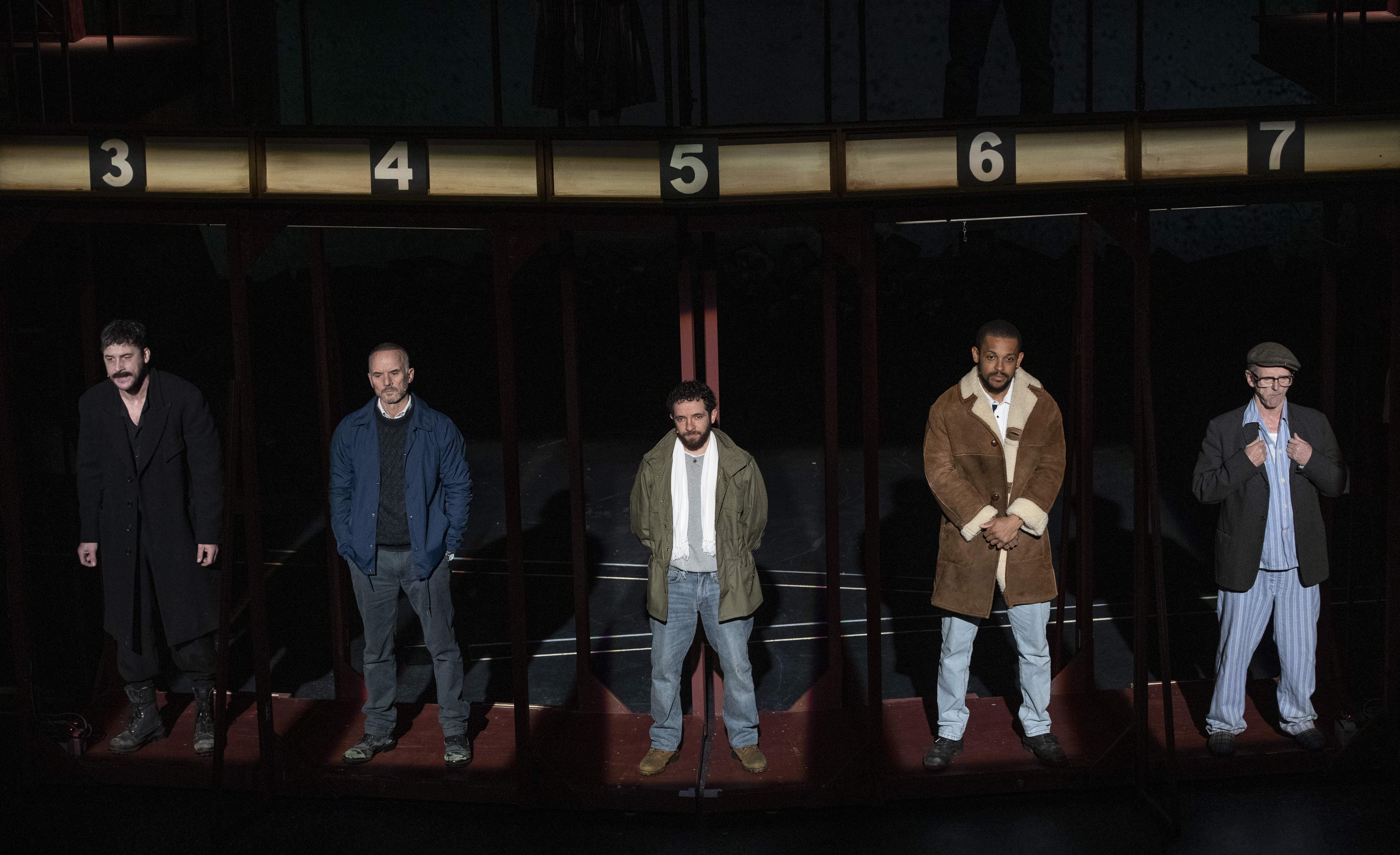
As in the original, it’s set in the 80s. Amy Jane Cook's set perfectly captures the atmosphere of Liverpool's forlorn, vacated docks four decades ago, while projected images remind us how Liverpool's skyline looked back in the days when two cathedrals, St Johns Beacon and the Royal Liver Building dominated the landscape before West, Beetham and Alexandra Towers kicked them to the kerb. The set indicates that the city itself is a key player, with the Department of Employment, the church and the pub waiting in the wings to complete the four-pillar structure that provides a framework for their lives.
The memory that seems to persist in the cultural imagination of Blackstuff is that threadbare cliche: it’s grim up north. The character that functions as the show’s emotional heart is Yosser, and his increasingly desperate catchphrase: “Gizza job.” But if you’ve watched the show, you’ll know that it was also incredibly funny (the dole officers playing at being private investigators, trying to catch Snowy illegally taking one-off jobs without telling them; the fact the building site the Boys are working on being a renovation that’ll be used by the Department of Employment).
Graham clearly understands this balance of pathos and humour that made the television series so successful, and for every devastating moment — a plasterer falling in slow motion while fleeing from an undercover social security officer, for example — we get plenty of scenes of witty back-and-forth, too.
The production also neatly swerves one key obstacle. It’s hard to think of a dramatic role that’s as hard to cast as Yosser — television actor Bernard Hill played the father-on-the-verge-of-a-nervous-breakdown with such charisma, it feels borderline impossible to imagine an another actor filling his shoes. But actor Barry Sloane is a sharp choice for the role. Instead of reimagining it (always the temptation when following such a memorable performance), he plays it close to the original — just as angry as Hill, if a little less controlled.
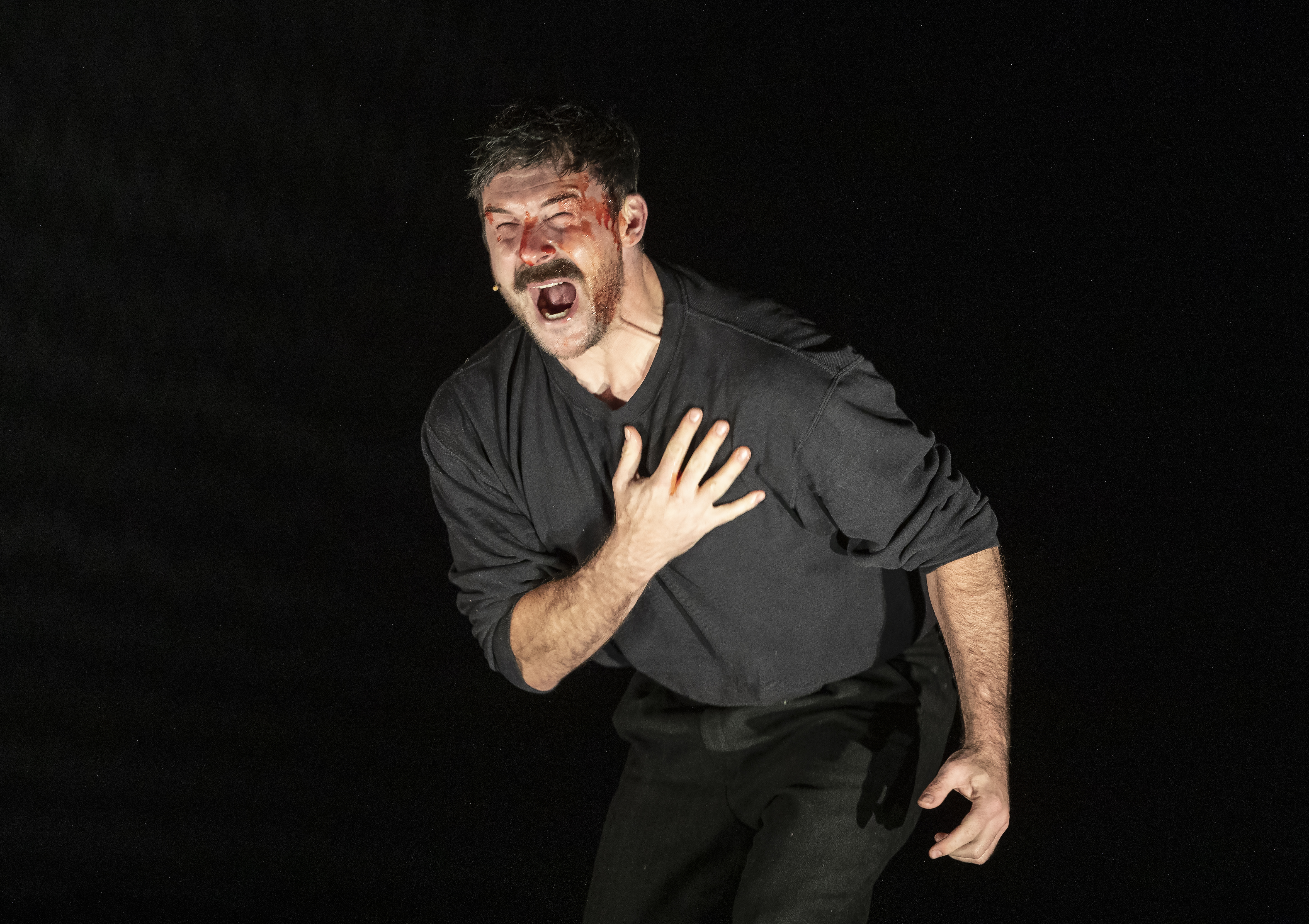
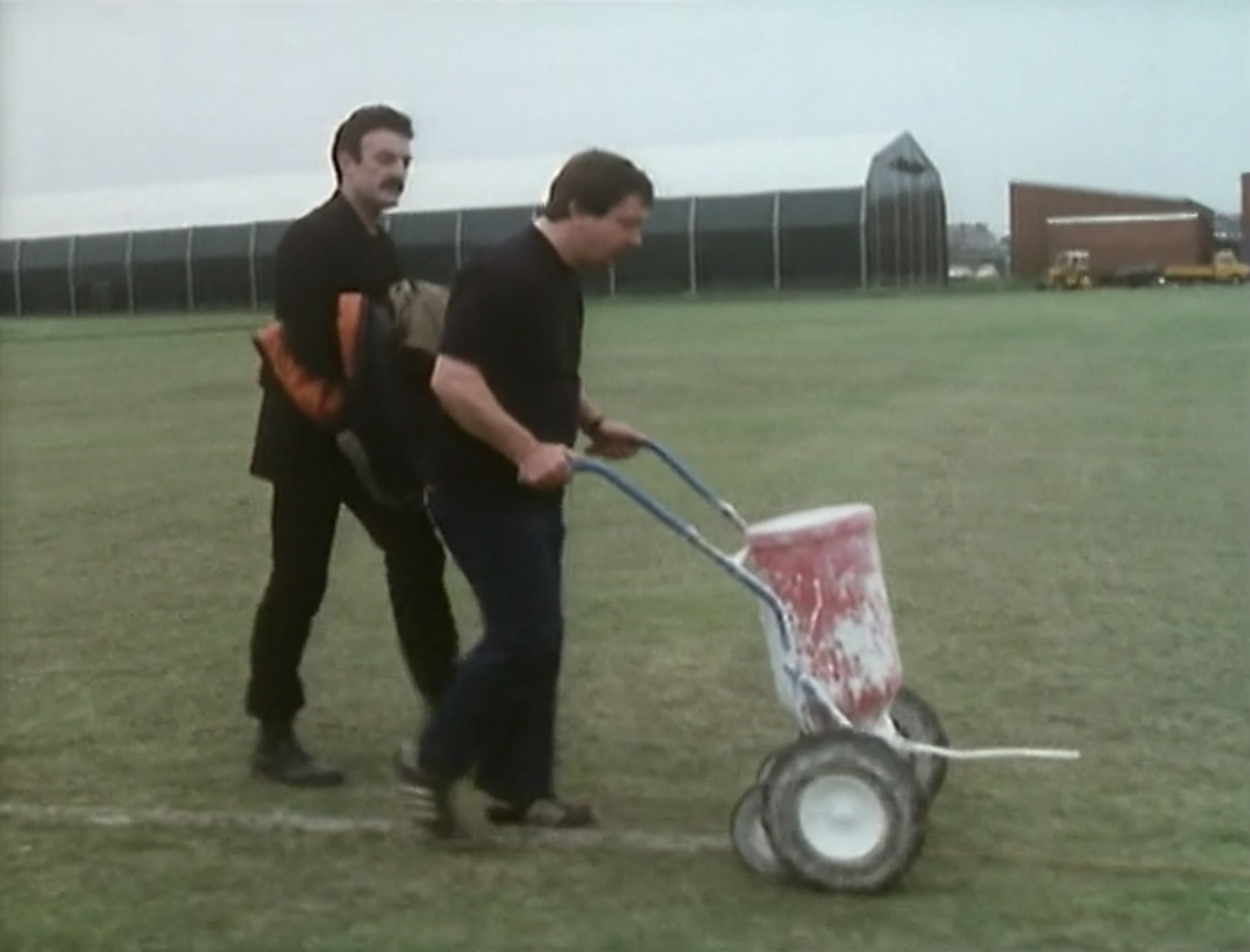
Given all the production’s varied strengths, why, then, at the interval, do I feel so shortchanged? Initially, I wonder if this has something to do with the nature of adaptation. A two-hour play, no matter how skilfully structured, is never going to do the same justice to the characters and the context as a five-hour series. There are holes in the material, and that’s the nature of condensing something. But my issue with the production feels like it goes beyond this, too.
I get chatting to Liverpool architect Mike Cunningham after the show. “We need to broaden the dialogue, and I'm not sure that this revival plays any positive part in doing that,” he says. “Cultural opportunity here is so high on the agenda here that it gives me vertigo. And I want more of that, for Liverpool – not this.”
I heard a similar opinion in the show's interval, too. 27-year-old audience member Fran tells me it’s good, but she thinks it’s time Liverpool moved on from clapping and cheering at plays about how we’ve all been so hard done by. “That's all so old school. We don't need to keep going on about what Margaret Thatcher did, or benefits cuts 40 years ago, or how clever Scousers can be when it comes to dodging the system. Why aren't there any new plays about what a great city Liverpool is?”
This, I think, is the heart of the matter. I think back to my time in 80s Liverpool, where most of my friends and I lived in an economic twilight zone where the dole paid our rent and subsistence. Luckily for us, unlimited 'unofficial' job opportunities in restaurants, shops and bars more than made up for the cash-flow shortfall. We lived on a borderline that fluctuated between breadline and abundance on a daily basis; rioters rioted on our doorstep, and we partied on. It was a time that probably felt sweeter to me than it did to Yosser or Chrissie or Dixie — after all, I was a carefree 17-year-old who didn't have three kids to feed.
But while I relish my own memories, nostalgia also feels like a corrosive force here. It makes me think of Bath, where I live part of the time: a city so laden with historical listed buildings that there’s little space to build anything new in the city centre at all. I remember a conversation that I had with another architect, back in the days when I was discovering Bath for myself, me waxing lyrical about how incredible it was to live in the middle of a living World Heritage Site while he regarded me with one of those “you have a lot to learn” looks. “It's a curse, not a blessing,” he countered. “In Bath, history comes first. There’s no space for anything new.”
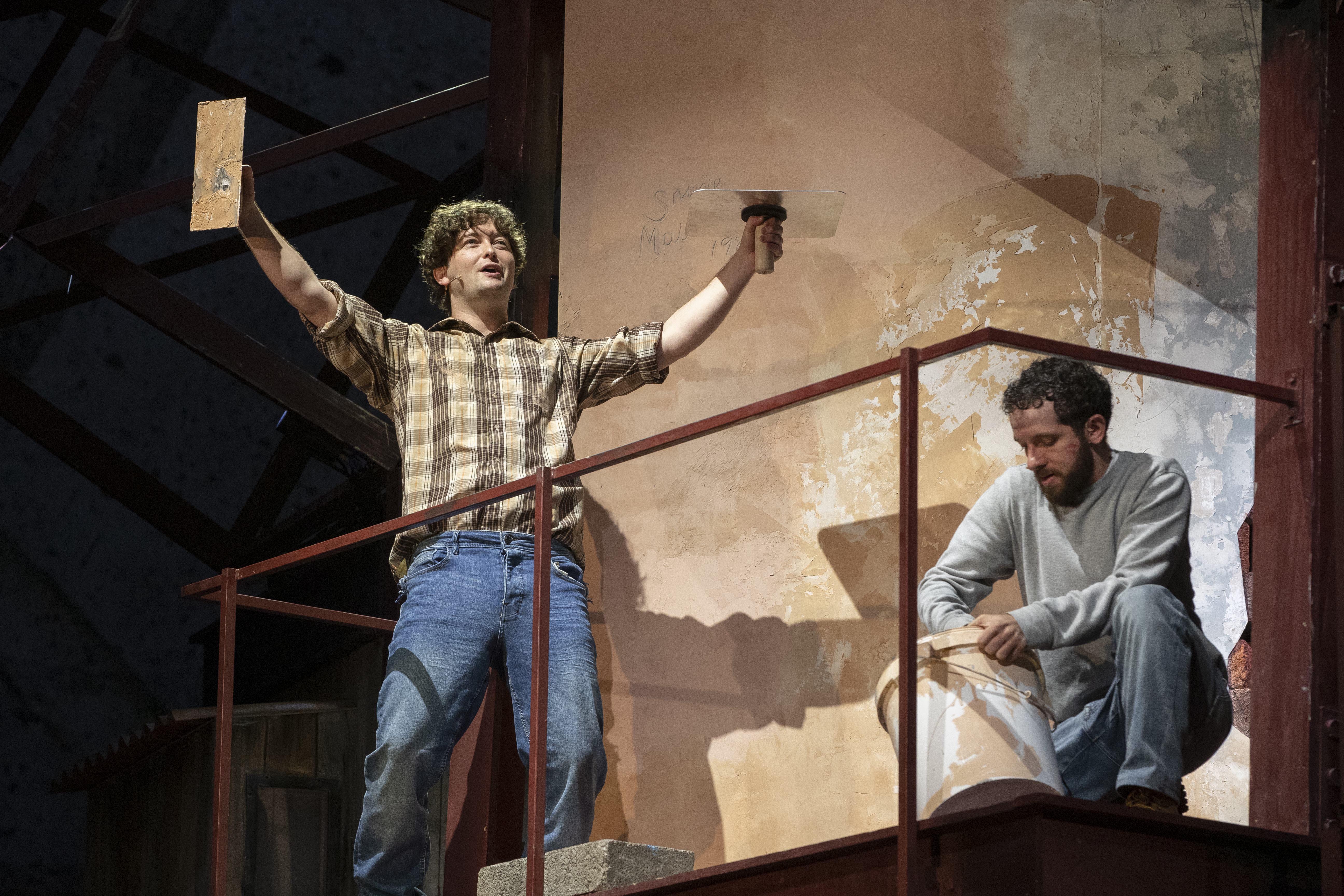
But surely there is plenty of space for the new in Liverpool’s theatre? When I search for new plays set in 2020s Liverpool, the result that comes up first is a stage adaptation of Helen Forrester's By The Waters Of Liverpool. “During the Great Depression of the 1930s, Helen's family are thrown into poverty,” the description reads. “Leaving their comfortable middle-class life in the south west of England, they choose Liverpool as the place to start over. They're in for a terrible shock!” It doesn’t make for much optimism about contemporary on-stage depictions of the city (and if you’re reading this, and can contradict me — please head to the comments and tell me what I should be watching).
In his first TV interview in two decades, to mark the new theatre production, Bleasdale tells the BBC presenter that he’s angry that he still sees similar struggles 40 years on. He acknowledges some differences (“There was unemployment and people would sign on, that doesn’t happen quite so much now.”) but argues that even though different bad things are happening to people, they’re still bad things. “Is quality of life for people like us and where we come from not important?” he asks.
Naysayers will argue that Merseyside currently has the lowest unemployment rate in the country, at around 3.5%. But this statistic obscures a far less optimistic situation. Yes, 96.5% of people of working age in Merseyside are currently in employment – but 37% of them are relying on temporary gigs. Meanwhile, recent figures from the Trussell Trust, which represents around half of the Merseyside region’s foodbanks, reveal that demand was almost 38% higher this year than it was in 2021. Today, life in Liverpool isn’t hard because of unemployment, but because of precarity — zero hour contracts and the cost of living crisis.
Still, to argue that this play is relevant now because things are hard in a different way, doesn’t entirely add up for me. If quality of life is important and where we come from is important, why not write a play about the economic struggles of today’s Liverpool? Why not write about the desperation of someone working a zero-hours contract for a vast global conglomerate? Yes, it would be less picturesque; an Amazon warehouse isn’t as pretty as a cherry-red van full of tarmac-ers dodging the dole officers — but it would be more true to the spirit of the original.
Blackstuff was never meant to be a period piece — it was a punch to the gut, a wake up call. It was the truth writ large: that it was disgusting and inhumane that so many Liverpudlians had to live like the Blackstuff boys did, teetering on the edge of breakdown. If the Royal Court really wants to do justice to Bleasdale’s legacy, they’d commission an entirely new piece by a Liverpudlian writer about the very different aches of the present: the boredom, the drudgery, the digital surveillance... the ongoing defiance of Liverpool. That would really be something that merited a trip to the theatre.

Comments
Latest
Northern Powerhouse Rail is back on track. We think...
The clockmaker of Wavertree
One of Merseyside’s oldest sports clubs still plays every Saturday
Does Liverpool have a ketamine problem?
The Royal Court’s 'Boys from the Blackstuff' is a hit. But it was never meant to be a period piece
Why do the 80s still cast such a long shadow?